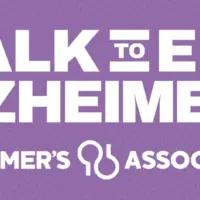
(NEW YORK) — A large new study conducted in Spain and Italy found that beta blockers, drugs often used to slow the heart rate and lower blood pressure, did not provide clear benefits for heart attack patients whose hearts were still functioning well.
The results of the study, known as REBOOT, were published in the New England Journal of Medicine on Saturday and presented during the European Society of Cardiology Congress 2025 in Madrid, Spain.
The REBOOT trial enrolled more than 8,400 patients recovering from a heart attack whose heart function was above 40% and assigned them to either take a beta blocker or no beta blocker within two weeks of leaving the hospital.
Over the course of approximately 3.7 years, there was no significant difference when it came to rates of death from any cause, repeat heart attacks or hospitalization for heart failure between the two groups, according to the study.
In a “subanalysis” of the study, published in the European Heart Journal, researchers specifically looked at outcomes involving the approximately 1,600 women from the original REBOOT trial and isolated their results.
In this case, beta blockers were associated with an increased risk of death from all causes for these women, compared to women who were not taking beta blockers. In contrast, no excess risk was associated with beta blocker use in men.
However, the authors advised that the results should be interpreted with caution as the women enrolled in REBOOT trial were generally older, sicker, and received less treatment for heart attacks than men.
Second study points to benefits of beta blockers
Results from another clinical trial called BETAMI-DANBLOCK — also published Saturday in the New England Journal of Medicine — appeared to yield yet another finding about beta-blocker use after a heart attack.
Results from this trial of more than 5,000 adults diagnosed with a heart attack and either mildly decreased or intact heart function demonstrated that those treated with beta blockers had fewer new heart attacks in the 3 and 1/2-year study period compared to those who did not take beta blockers after their initial heart attack.
Notably, there was no difference in rates of death, heart failure, stroke or other major heart issues between the two groups.
“The major driver was a reduction in non-fatal heart attack at follow-up,” said Dr. Gregg Fonarow, professor of cardiovascular medicine at the University of California, Los Angeles, in an interview with ABC News.
While it is important to acknowledge that the BETAMI-DANBLOCK study found a potential benefit in beta blocker use, it had some limitations. This was a smaller-scale study that combined two clinical trials into one because separately they were not able to enroll enough patients. Different rules for who could join each of the studies in each country may have skewed the results, as well.
“REBOOT was a cleaner study in terms of protocol and inclusion criteria,” said Dr. Steven Pfau, professor of cardiovascular medicine and interventional cardiologist at Yale School of Medicine in New Haven, Connecticut.
Notably, REBOOT challenges over 40 years of standardized practice, which calls for patients admitted to the hospital for a heart attack to be started on beta blockers before or shortly after they are discharged.
Cardiologists’ methods for treating heart attacks and opening blockages in the coronary arteries in a timely fashion have improved drastically over the past 10-20 years, experts say. That’s why, in an age of improved medical therapies and procedural interventions for heart attacks, such as better-performing coronary artery stents, it may be time to rethink the long-standing guidance on beta-blocker use, according to some experts.
“Beta blockers were developed at a time before routine reperfusion therapy for acute heart attacks and the evolution of more potent medications, and care has really evolved,” said Fonarow.
Pfau said that neither study makes a compelling case for beta blockers versus no beta blockers for this select group of patients.
“If beta blockers do have an effect, it is probably small, given the other therapies we have,” he said. “It fits the discussion for both studies that, with the way we currently practice, beta blockers potentially add very little to outcomes after a heart attack for patients with preserved heart function and no other pre-existing reason to be on a beta blocker.”
If patients can take beta blockers safely, they should keep using them for now, Fonarow advised. But he also called for more studies to understand which patients benefit the most from this type of medication.
Copyright © 2025, ABC Audio. All rights reserved.














